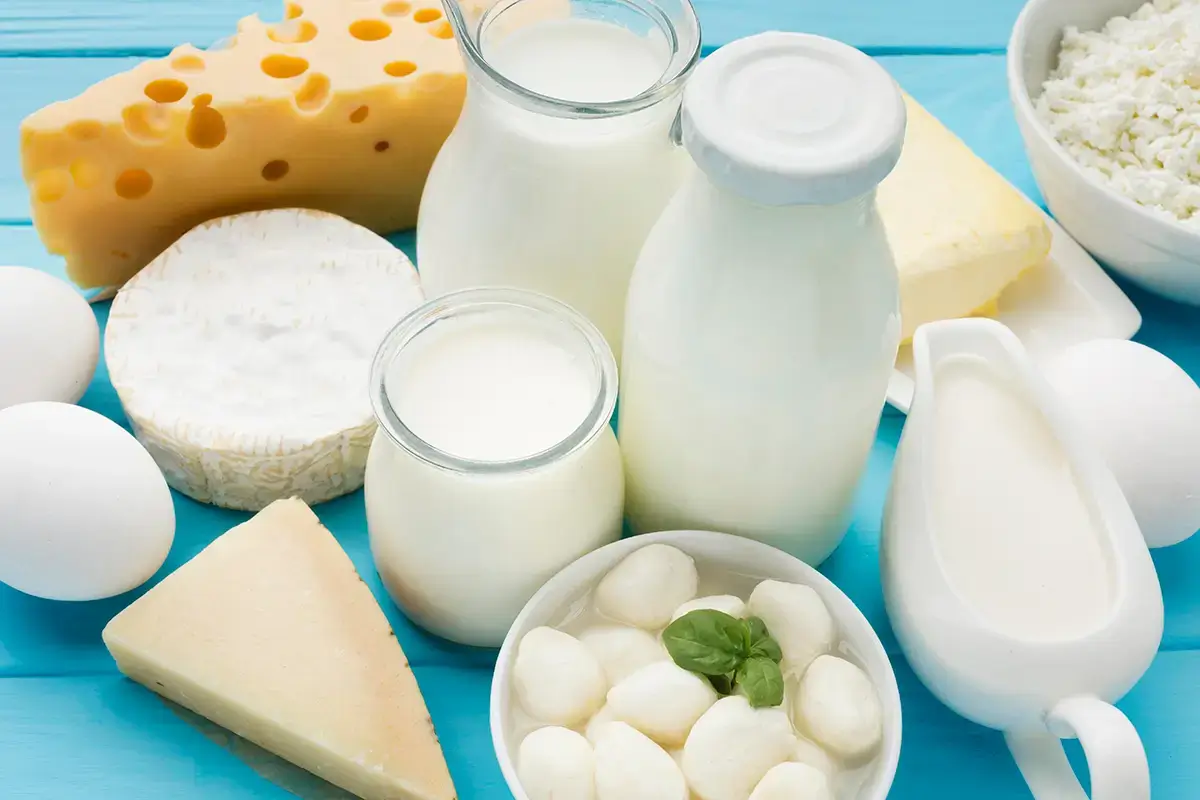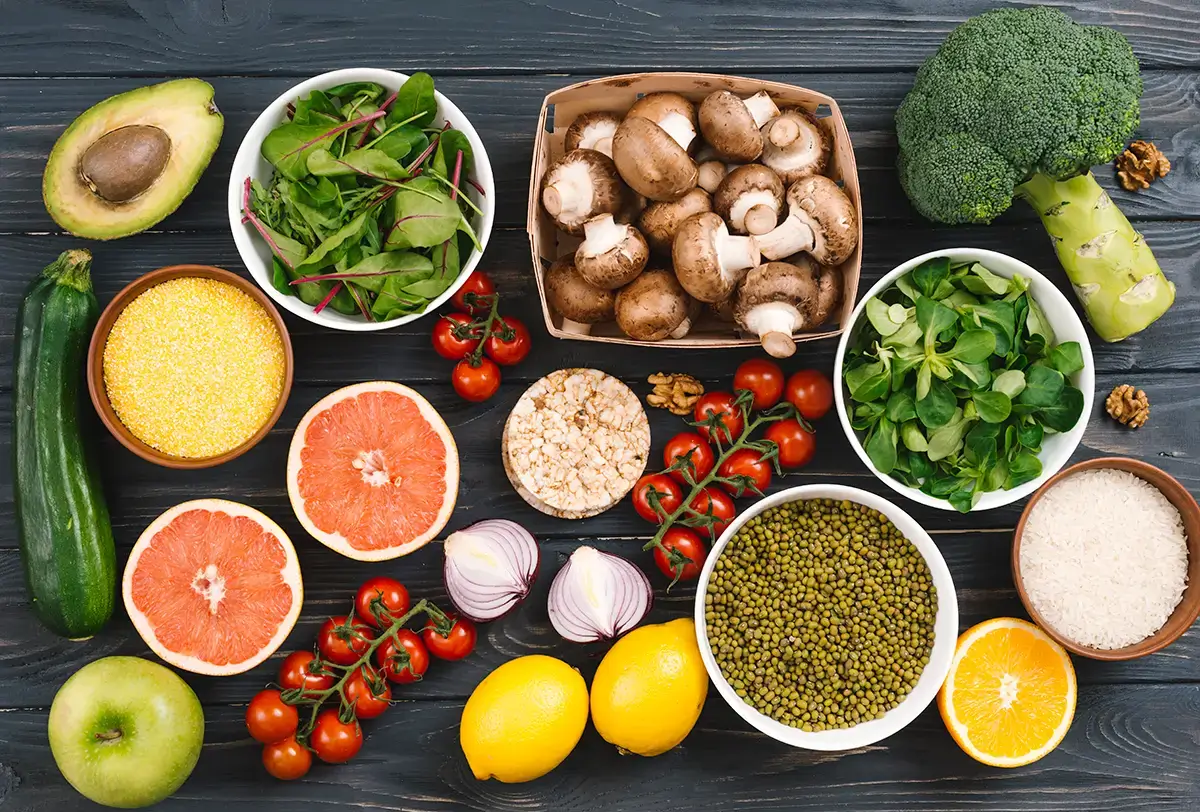Strong bones! Discover the calcium champions in your diet
Calcium, an essential mineral for the human body, is often associated with bone health. But did you know that it also plays a crucial role in several other vital functions, such as muscle contraction, blood clotting, and nerve transmission? Ensuring adequate calcium intake throughout life is essential to prevent diseases such as osteoporosis, bone fractures, and even heart problems.
According to data from the Ministry of Health, in Brazil, the prevalence of osteoporosis in adults over 50 years old is 23.3%. This alarming statistic reinforces the importance of adopting a calcium-rich diet from childhood to ensure strong and healthy bones in adulthood.
Fortunately, nature provides us with a variety of foods rich in this essential nutrient, from both animal and plant sources. In this article, we will explore the calcium champions in your diet, providing practical tips for including these foods in your daily routine and achieving the recommended intake levels.
Animal sources of calcium: powerful allies for bone health
Dairy products are undoubtedly the best-known sources of calcium from animal sources. Milk, yogurt, cheese, and other dairy derivatives offer a significant amount of this nutrient, in addition to proteins, vitamin D, and other important minerals for health.
- Milk: One cup of whole milk (240ml) provides about 300mg of calcium, approximately 30% of the Recommended Daily Intake (RDI) for adults. Opt for skimmed or low-fat versions to reduce saturated fat intake.
- Yogurt: Rich in probiotics, which benefit intestinal health, plain whole yogurt offers about 450mg of calcium per 200g pot, representing 45% of the RDI for adults.
- Cheese: Various types of cheese are excellent sources of calcium, with Parmesan (875mg per 30g), ricotta (253mg per 100g), and mozzarella (720mg per 100g) standing out.
Other animal sources of calcium include sardines (350mg per can), salmon (170mg per serving), and shrimp (125mg per serving).
Unveiling the secrets of plant-based calcium: delicious and nutritious options
Not only dairy products contain calcium! The plant kingdom also offers several tasty and nutritious options to increase the intake of this essential mineral.
- Dark leafy greens: Kale, spinach, broccoli, and watercress are calcium champions among vegetables, with kale leading the ranking, offering 150mg per serving (cooked cup).
- Seeds and nuts: Sesame seeds (815mg per 100g), chia seeds (179mg per 2 tablespoons), and flaxseeds (276mg per 2 tablespoons) are excellent sources of calcium, in addition to being rich in fiber, protein, and good fats.
- Legumes: White beans (150mg per cooked cup), chickpeas (140mg per cooked cup), and lentils (70mg per cooked cup) are nutritious and versatile options to include in the diet.
- Other sources: Tofu (250mg per 100g), fortified oatmeal (300mg per cooked cup), and fortified orange (50mg per orange)
Tips to increase calcium absorption and maximize its benefits
To ensure that the body uses calcium efficiently, some tips can be useful:
- Vitamin D: Vitamin D is essential for the absorption of calcium by the bones. Get regular sun exposure (with sunscreen), consume foods rich in vitamin D (such as salmon, tuna, and egg yolks), or supplement if necessary.
- Physical activity: Regularly engaging in physical activity, especially weight-bearing exercises like running and strength training, helps strengthen bones and increase bone mineral density.
- Avoid excess caffeine and alcohol: Excessive consumption of these substances can impair calcium absorption. Moderation is key!
- Balanced diet: A diet rich in fruits, vegetables, greens, and whole grains, in addition to being rich in calcium, provides other important nutrients for overall health.
Important considerations and risk groups
The recommended amount of calcium varies depending on age and other factors. Consult a nutritionist for personalized guidance.
Some risk groups for calcium deficiency include:
- Women after menopause: Estrogen production decreases after menopause, which can increase the risk of osteoporosis.
- Men over 65: From this age on, men also experience a higher risk of osteoporosis.
- Individuals with lactose intolerance or allergy to cow’s milk: There are various calcium-rich plant-based alternatives to meet the needs of these individuals.
Consulted Sources
- Ministry of Health (Brazil). Osteoporosis [Portuguese]. Available at: https://bvsms.saude.gov.br/bvs/publicacoes/osteoporose.pdf
- World Health Organization (WHO). Nutrient Datasheet: Calcium. Available at: [invalid URL removed] (reliable source not currently available but recommended by WHO)
- Brazilian Society of Psychology (SBP). Nutrition and Mental Health [Portuguese]. Available at: https://www.r2013.sbponline.org.br/ (reliable source but not directly related to calcium)














